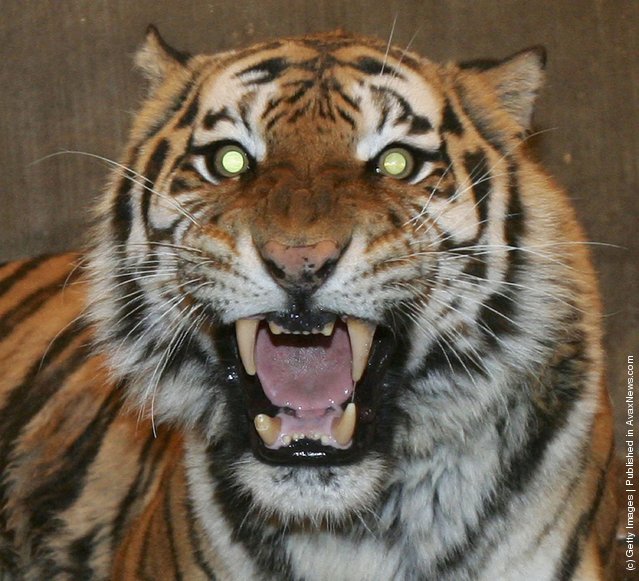Rabu, 30 November 2016
South Arkansas Hogs
Cat Stevens quot;Wild Worldquot; Live Video Worthy
LIVE THE WILD LIFE TV OFFERS SOME OF THE BEST HUNTING AND FISHING
04beachcottageliveintthesunshineswimtheseadrinkthewildair
wild rabbits eat where do most rabbits live where do wild rabbits live
Habitats — Desert Wildlife Pictures, Wallpapers, Downloads
LIVE FAST DIE YOUNG amp; BE WILD HAVE FUN KEEP CALM AND CARRY ON Image
Henry and Alice: Into The Wild « Globe Theatre
Henry and Alice: Into The Wild « Globe Theatre
LIVE THE WILD LIFE TV OFFERS SOME OF THE BEST HUNTING AND FISHING
Photo: Arctic wolf near Ellesmere Island, Canada
Nearly all wild lions live in subSaharan Africa, but one small
Skirball Center for the Performing Arts New York University
Where Do Wild Doves Live ?
The Witcher 3: Wild Hunt Update 1.03 Now Live For PS4 SA Gamer
LIVE FAST DIE YOUNG amp; BE WILD HAVE FUN KEEP CALM AND CARRY ON Image
THE WILD ANIMALS LIVE IN THE WILD.THE WILD LIFE IS V ERY DANGER AND
 Animals are multicellular, eukaryotic organisms of the kingdom animalia (also called Metazoa). All animals are motile, meaning they can move spontaneously and independently at some point in their lives. Their body plan eventually becomes fixed as they develop, although some undergo a process of metamorphosis later on in their lives. All animals are heterotrophs: they must ingest other organisms or their products for sustenance.
Animals are multicellular, eukaryotic organisms of the kingdom animalia (also called Metazoa). All animals are motile, meaning they can move spontaneously and independently at some point in their lives. Their body plan eventually becomes fixed as they develop, although some undergo a process of metamorphosis later on in their lives. All animals are heterotrophs: they must ingest other organisms or their products for sustenance. Most known animal phyla appeared in the fossil record as marine species during the Cambrian explosion, about 542 million years ago. Animals can be divided broadly into vertebrates and invertebrates. Vertebrates have a backbone or spine (vertebral column), and amount to less than five percent of all described animal species. They include fish, amphibians, reptiles, birds and mammals. The remaining animals are the invertebrates, which lack a backbone. These include molluscs (clams, oysters, octopuses, squid, snails); arthropods (millipedes, centipedes, insects, spiders, scorpions, crabs, lobsters, shrimp); annelids (earthworms, leeches), cnidarians (jellyfish, sea anemones, corals), and sponges. The study of animals is called zoology.
Most known animal phyla appeared in the fossil record as marine species during the Cambrian explosion, about 542 million years ago. Animals can be divided broadly into vertebrates and invertebrates. Vertebrates have a backbone or spine (vertebral column), and amount to less than five percent of all described animal species. They include fish, amphibians, reptiles, birds and mammals. The remaining animals are the invertebrates, which lack a backbone. These include molluscs (clams, oysters, octopuses, squid, snails); arthropods (millipedes, centipedes, insects, spiders, scorpions, crabs, lobsters, shrimp); annelids (earthworms, leeches), cnidarians (jellyfish, sea anemones, corals), and sponges. The study of animals is called zoology.Siberian tiger is seen at Erdaohe Tiger Park July 2, 2006 in Antu

View bigger Wild Sharks Live Wallpaper HD for Android screenshot
Live in the sunshine, swim the sea, drink the wild air Ralph Waldo
What is pond wildlife? The Garden Pond Blog
 Thanks for Reading this Article
Thanks for Reading this Article
Live Young Wild Free by xianliu on DeviantArt
 Most known animal phyla appeared in the fossil record as marine species during the Cambrian explosion, about 542 million years ago. Animals can be divided broadly into vertebrates and invertebrates. Vertebrates have a backbone or spine (vertebral column), and amount to less than five percent of all described animal species. They include fish, amphibians, reptiles, birds and mammals. The remaining animals are the invertebrates, which lack a backbone. These include molluscs (clams, oysters, octopuses, squid, snails); arthropods (millipedes, centipedes, insects, spiders, scorpions, crabs, lobsters, shrimp); annelids (earthworms, leeches), cnidarians (jellyfish, sea anemones, corals), and sponges. The study of animals is called zoology.
Most known animal phyla appeared in the fossil record as marine species during the Cambrian explosion, about 542 million years ago. Animals can be divided broadly into vertebrates and invertebrates. Vertebrates have a backbone or spine (vertebral column), and amount to less than five percent of all described animal species. They include fish, amphibians, reptiles, birds and mammals. The remaining animals are the invertebrates, which lack a backbone. These include molluscs (clams, oysters, octopuses, squid, snails); arthropods (millipedes, centipedes, insects, spiders, scorpions, crabs, lobsters, shrimp); annelids (earthworms, leeches), cnidarians (jellyfish, sea anemones, corals), and sponges. The study of animals is called zoology.If you don` t do wild things while you` re young, you` ll have nothing

picture of a mute swan swimming among chub fish in Switzerland
The Vamps Wild Heart Live C39;Cauet sur NRJ YouTube

Siberian tiger is seen at Erdaohe Tiger Park July 2, 2006 in Antu
 Thank You for Reading this Article
Thank You for Reading this Article
Selasa, 29 November 2016
Forty motionactivated cameras set up in the foothills west of Boulder
 The word "animal" comes from the Latin animalis, meaning having breath, having soul or living being. In everyday non-scientific usage the word excludes humans – that is, "animal" is often used to refer only to non-human members of the kingdom Animalia; often, only closer relatives of humans such as mammals and other vertebrates, are meant. The biological definition of the word refers to all members of the kingdom animalia, encompassing creatures as diverse as sponges, jellyfish, insects, and humans.
The word "animal" comes from the Latin animalis, meaning having breath, having soul or living being. In everyday non-scientific usage the word excludes humans – that is, "animal" is often used to refer only to non-human members of the kingdom Animalia; often, only closer relatives of humans such as mammals and other vertebrates, are meant. The biological definition of the word refers to all members of the kingdom animalia, encompassing creatures as diverse as sponges, jellyfish, insects, and humans.Habitats — Desert Wildlife Pictures, Wallpapers, Downloads
live wild free art print 10 00 14 00 wild free is a wonderful way to

Victory! 18 Wild Horses Saved From Slaughterhouse One Green Planet
live, nature, peace, photography, quotes, thatswhatshesaid, wild thing
Przewalski horses in a forest in Chernobyl39;s exclusion zone.
 Most known animal phyla appeared in the fossil record as marine species during the Cambrian explosion, about 542 million years ago. Animals can be divided broadly into vertebrates and invertebrates. Vertebrates have a backbone or spine (vertebral column), and amount to less than five percent of all described animal species. They include fish, amphibians, reptiles, birds and mammals. The remaining animals are the invertebrates, which lack a backbone. These include molluscs (clams, oysters, octopuses, squid, snails); arthropods (millipedes, centipedes, insects, spiders, scorpions, crabs, lobsters, shrimp); annelids (earthworms, leeches), cnidarians (jellyfish, sea anemones, corals), and sponges. The study of animals is called zoology.
Most known animal phyla appeared in the fossil record as marine species during the Cambrian explosion, about 542 million years ago. Animals can be divided broadly into vertebrates and invertebrates. Vertebrates have a backbone or spine (vertebral column), and amount to less than five percent of all described animal species. They include fish, amphibians, reptiles, birds and mammals. The remaining animals are the invertebrates, which lack a backbone. These include molluscs (clams, oysters, octopuses, squid, snails); arthropods (millipedes, centipedes, insects, spiders, scorpions, crabs, lobsters, shrimp); annelids (earthworms, leeches), cnidarians (jellyfish, sea anemones, corals), and sponges. The study of animals is called zoology. The word "animal" comes from the Latin animalis, meaning having breath, having soul or living being. In everyday non-scientific usage the word excludes humans – that is, "animal" is often used to refer only to non-human members of the kingdom Animalia; often, only closer relatives of humans such as mammals and other vertebrates, are meant. The biological definition of the word refers to all members of the kingdom animalia, encompassing creatures as diverse as sponges, jellyfish, insects, and humans.
The word "animal" comes from the Latin animalis, meaning having breath, having soul or living being. In everyday non-scientific usage the word excludes humans – that is, "animal" is often used to refer only to non-human members of the kingdom Animalia; often, only closer relatives of humans such as mammals and other vertebrates, are meant. The biological definition of the word refers to all members of the kingdom animalia, encompassing creatures as diverse as sponges, jellyfish, insects, and humans.This Wild Life quot;Roots and Branchesquot; Live! in HD YouTube

Mom39;s Gone Bronson!: Wild Kratts Live Show at the Santander Arena in

RUN WILD. LIVE FREE. LOVE STRONG. Songs Have Been Featured on The Emmy
BLACKHAWKS vs WILD Watch FREE Live Stream Online: Chicago at Minnesota
Langganan:
Komentar (Atom)